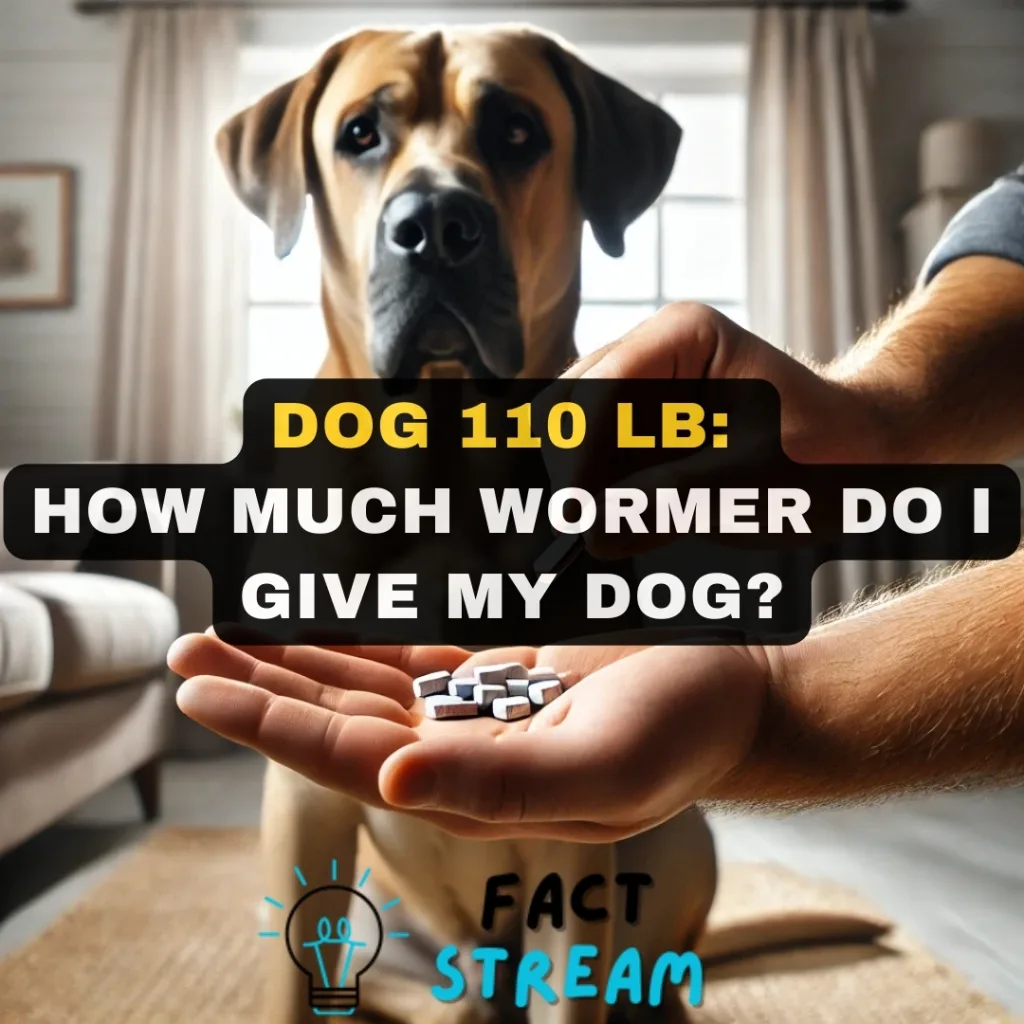Dog 110 lb: How Much Wormer Do I Give My Dog?
Worms are an unfortunate reality for many dog owners. These parasites can cause a range of health problems, from mild discomfort to serious illness. As a responsible pet owner, it’s important to understand the different types of worms, how to prevent infestations, and how to properly treat your dog if they become infected.
This comprehensive guide will focus on the appropriate wormer dosage for a 110 lb dog.
Understanding Dog Worms
There are several common types of worms that can infect dogs, including:
- Roundworms ( Toxocara canis, Toxascaris leonina ): Roundworms are common intestinal parasites in dogs, especially puppies. They can cause vomiting, diarrhea, weight loss, and a pot-bellied appearance.
- Hookworms ( Ancylostoma caninum, Uncinaria stenocephala ): These parasites attach to the lining of the intestines and feed on blood. Hookworm infections can cause anemia, weakness, and even death in severe cases.
- Whipworms ( Trichuris vulpis ): Whipworms live in the large intestine and can cause diarrhea, weight loss, and bloody stools.
- Tapeworms ( Taenia pisiformis ): Tapeworms are flat, segmented worms that live in the intestines. They are typically contracted by ingesting infected fleas. Tapeworm infections may not cause obvious symptoms, but segments of the worm may be visible in the dog’s stool or around the anus.
- Heartworms: These parasites live in the heart and lungs of dogs. They are transmitted through mosquito bites and can cause serious heart and lung damage.
How Much Wormer Does a 110 lb Dog Need?
The appropriate wormer dosage for a dog depends on its weight and the type of worm being treated. It is crucial to consult with your veterinarian to determine the correct dosage and wormer for your dog.
Several sources provide worming information for dogs, including charts for various medications. The information below is based on general guidelines, and you should always follow your veterinarian’s instructions for the safe and effective use of deworming medications.
Here’s a general overview of the recommended dosages for a 110 lb dog, based on common deworming medications:
Pyrantel Pamoate
- Dosage: 1 mL per 10 pounds of body weight. For a 110 lb dog, this would be 11 mL.
- Frequency: Once a day for three consecutive days, then repeat every two weeks.
- Treats: Roundworms and hookworms.
- Notes: Safe for puppies, pregnant, and nursing dogs.
Fenbendazole (Safe-Guard/Panacur)
- Dosage:
- For routine deworming: 50 mg/kg (22.7 mg/lb) of body weight. You would need two 4-gram pouches.
- For tapeworms and giardia: 50mg/kg (22.7mg/lb) for 5 consecutive days.
- For lungworm ( Oslerus osleri ) in dogs: 50mg/kg (22.7mg/lb) daily for 7 consecutive days.
- Frequency: Once a day for 3 consecutive days for routine deworming.
- Treats: Roundworms, hookworms, whipworms, some tapeworms ( Taenia species only), and giardia.
- Notes: Available in liquid, paste, and granule formulations.
Ivermectin
- Dosage:
- For intestinal parasites: 0.2 mg/kg (0.09 mg/lb).
- For heartworm prevention: 0.006 mg/kg (0.003 mg/lb).
- Frequency: Consult with your veterinarian.
- Treats: Roundworms, hookworms, whipworms, and heartworm prevention.
- Notes:
- Use with extreme caution in collies and related breeds due to potential sensitivity.
- Must be diluted to the appropriate concentration before administration.
- Available as a 0.08% sheep drench which can be used without diluting.
Praziquantel (Droncit)
- Dosage: Varies based on weight. For a dog weighing between 100-125 pounds, 5 tablets is the maximum dosage.
- Frequency: Single dose.
- Treats: Tapeworms.
- Notes: Available over-the-counter.
Choosing the Right Wormer
Choosing the right wormer for your dog can be a complex decision. It’s essential to consult with your veterinarian, who can:
- Accurately diagnose the type of worm(s) present.
- Determine the appropriate wormer based on your dog’s weight, health status, and lifestyle.
- Provide specific instructions on dosage and administration.
Preventing Worm Infestations
Preventing worm infestations is crucial for protecting your dog’s health. You can help prevent worms by:
- Regularly deworming your dog as recommended by your veterinarian.
- Practicing good hygiene, such as picking up feces immediately and washing your hands thoroughly after handling pets.
- Preventing flea infestations, as fleas can transmit tapeworms.
- Avoiding contact with wild animals, as they can carry parasites.
Conclusion
Worms are a common problem for dogs, but with proper prevention and treatment, you can help keep your furry friend healthy and parasite-free. Remember to consult with your veterinarian to determine the appropriate worming schedule and medication for your dog. Always follow your veterinarian’s instructions carefully and never administer medication without their guidance.


